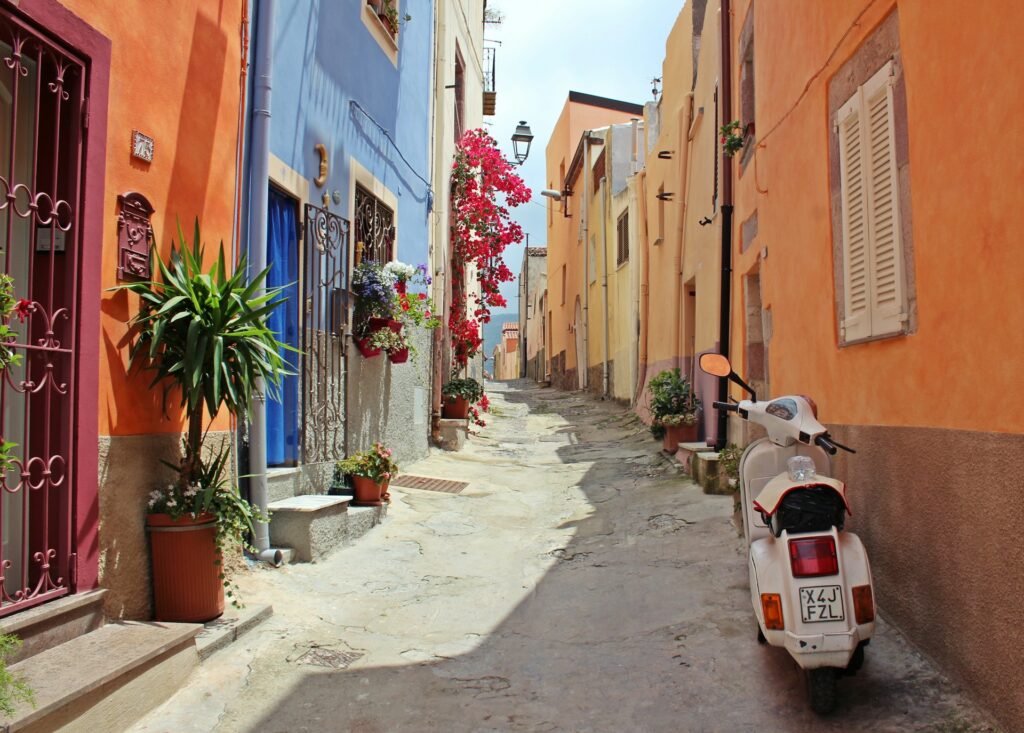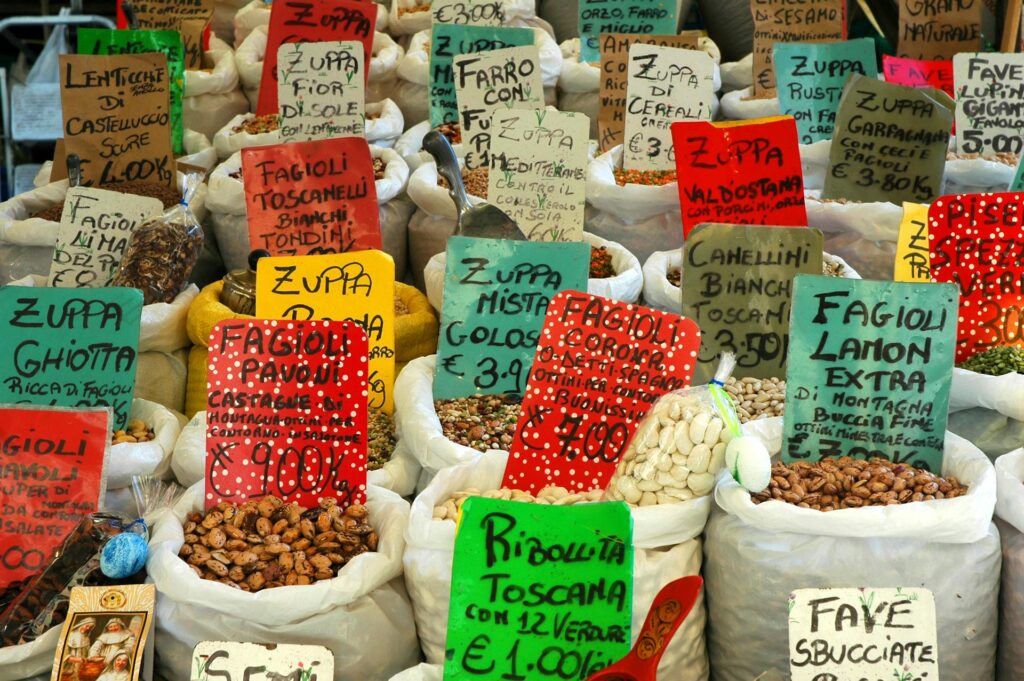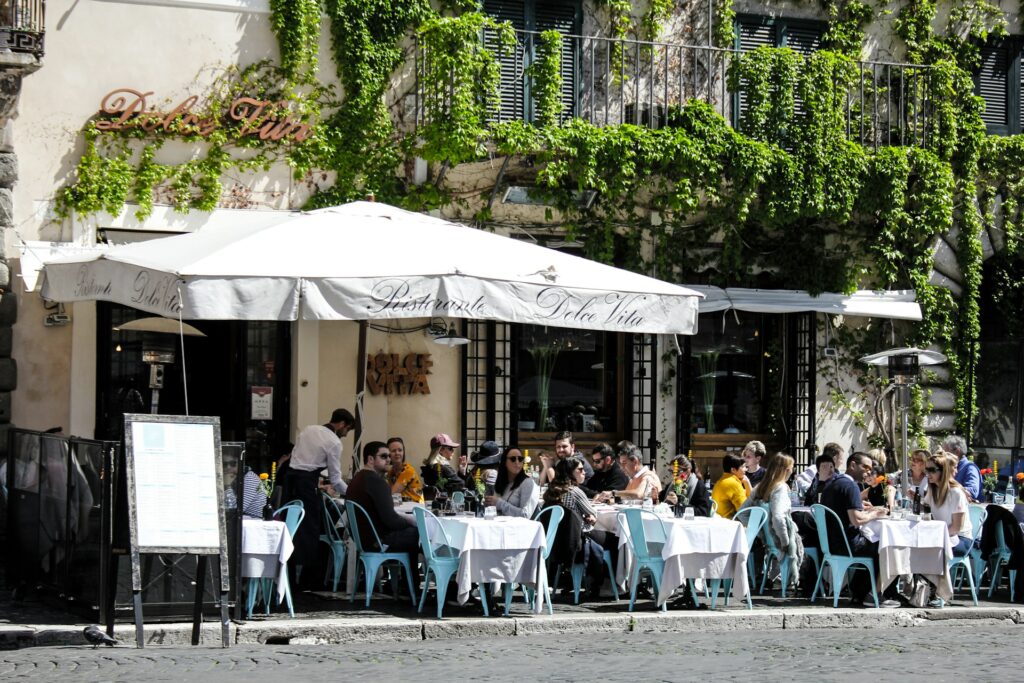Italy often gets painted as this dreamy place. Sunny hills in Tuscany, ancient Roman ruins full of stories, and the simple pleasure of a perfect plate of pasta. It’s a picture of la dolce vita, the sweet life.
But as author Beppe Severgnini points out, there’s a big gap between the dream and the reality. Visiting Italy, he says, is like taking a “soft drug,” full of predictable, easy pleasures. But living there? That’s a whole other story.
This guide is here to help you through that maze. It goes beyond the usual touristy stuff and dives into ten of the most important (and sometimes surprising) truths about living in Italy.
If you’re thinking about moving there, knowing these realities upfront will help you turn that dream into a lasting, fulfilling life. The road won’t always be smooth, and there will definitely be some frustrations.
But many expats will tell you, it’s all worth it when you’re prepared. So, here’s a closer look at what real expat life in Italy is like, a mix of beauty, bureaucracy, joy, and challenges.
Contents
- 1 1. Bureaucracy: Not Just Paperwork, But a Rite of Passage
- 2 2. The “Slow Life” Has a Strict (and Sometimes Annoying) Timetable
- 3 3. Your Coffee Order Is a Social Statement
- 4 4. Making Friends in Italy Takes Time, and Effort
- 5 5. Italy Isn’t Just One Country. It’s Two Very Different Worlds
- 6 6. Finding a Home in Italy Is Your First (and Toughest) Negotiation
- 7 7. The Job Market: Don’t Move to Italy Without a Job Lined Up
- 8 8. Grocery Shopping in Italy Comes with Its Own Rules
- 9 9. Healthcare in Italy: Great Care, Long Waits
- 10 10. The Real La Dolce Vita: It’s About the Struggle, Not Just the Sunset
- 11 Conclusion: Choose Your Compromises
1. Bureaucracy: Not Just Paperwork, But a Rite of Passage

If you ask expats in Italy what drives them crazy, the number one answer is almost always the bureaucracy.
It all starts with the visa process, but it quickly snowballs into a series of hoops you need to jump through, like getting a permesso di soggiorno (residence permit), a codice fiscale (tax code), registering at the town hall, signing up for healthcare, and even trying to open a bank account.
Unlike many other countries where everything’s digital and streamlined, Italy’s bureaucracy is still very much “old school.” Most things have to be done in person, and finding the right office (or ufficio) in a small town can be like going on a treasure hunt. Don’t expect an easy-to-find website with directions.
On top of that, the language barrier is real. Many government workers, especially outside the big cities, don’t speak much English, so being able to speak at least some Italian is pretty much a must if you want to get anything done.
The system is slow, paper-heavy, and honestly, a bit of a puzzle. Every piece of paper you get has to be treated like gold, since losing even a receipt can delay things by months. Expats often feel like officials make up rules on the fly, and though it can seem like they’re picking on foreigners, Italians themselves deal with the same chaos. The difference is, they know how to navigate the maze.
The system’s mix of in-person appointments, unclear rules, and the need for persistence doesn’t just test your patience; it also tests how well you’re adapting to Italian social norms. Success in this system often comes down to who you know, not just what you know. Many expats eventually hire consultants or lean on Italian friends to help with the process.
So, in a way, conquering the bureaucracy in Italy is more than just crossing things off a to-do list. It’s a sign that you’ve truly integrated into life there. It’s like an unofficial badge of honor, signaling your shift from being a visitor to a real resident.
2. The “Slow Life” Has a Strict (and Sometimes Annoying) Timetable

The idea of la dolce vita, or the “slow life,” is built into daily life with the tradition of the riposo. Also called la pausa (the break) or, in southern Italy, pennichella (the nap), the riposo is the national midday shutdown.
Usually from around 12:30 PM or 1:00 PM until 3:30 PM or 4:00 PM, almost everything shuts down—shops, banks, post offices, pharmacies, even local police stations in smaller towns.
The midday break helps people avoid the heat of the Mediterranean sun, and it’s also tied to the importance of pranzo, the big, long lunch that’s the main meal of the day. It’s a cultural thing—family, food, and rest come first, and work comes second. The typical Italian workweek is shorter than in many other countries, around 36 hours, and everything is structured to prioritize a healthy work-life balance.
For expats used to things being open all the time, the riposo can be a huge frustration. You need to plan around narrow windows of time in the morning or late afternoon. The idea of rotating staff to keep businesses open is rare. Instead, when it’s break time, the whole place just shuts down.
But the riposo is also a key part of Italy’s economy and way of life. By enforcing this daily break, it challenges the typical 9-to-5 corporate world that’s become standard everywhere else. It supports small, family-run businesses, where the owner can lock up and go home to eat with their family. It’s a shield against the global push where businesses are expected to operate round-the-clock.
So, when you find a shop closed at 2:00 PM, it’s not just a hassle. Learning to live with the riposo means embracing a different view of productivity, one that values personal well-being and community over being always “on.”
3. Your Coffee Order Is a Social Statement

In Italy, the bar (coffee shop) is the heart of social life, but it’s not really about having a drink or a snack, especially not in the morning. It’s all about the daily coffee ritual. And this ritual comes with a set of unwritten rules.
The typical way to have coffee is to order it and drink it al banco (at the bar), standing up. It’s a quick, social interaction that usually only takes a few minutes. If you decide to sit at a table, it’s a more relaxed experience, but expect to pay a little extra for the privilege.
The most famous and strict rule is the “cappuccino law”: no milky coffee after 11:00 AM or noon. It’s based on the idea that drinking a lot of milk after a meal can mess with digestion. So, ordering a cappuccino in the afternoon is one of the quickest ways to spot a tourist.
Knowing the lingo is just as important. A caffè is simply a shot of espresso. If you ask for a latte, you’ll get a glass of milk (not coffee with milk like you might expect). A caffè macchiato is an espresso with just a bit of foamed milk, and you can have that anytime.
If you’re after something like American drip coffee, you’ll want a caffè americano, which is just espresso watered down with hot water.
Also, the idea of a to-go coffee cup is nearly nonexistent in Italy. Coffee is meant to be a brief pause in the day, not something you carry around on the go.
When an expat orders their espresso al banco after lunch, it’s a small but significant sign that they’re getting the hang of local customs.
On the other hand, ordering a big cappuccino at 3:00 PM isn’t just a “wrong” order. It’s a clear signal that you’re still a visitor who doesn’t quite get the Italian way of doing things.
Read: I’ve Lived in Italy for Six Years — Here Are 10 Unspoken Rules To Follow When You Visit
4. Making Friends in Italy Takes Time, and Effort

One of the most common surprises for expats in Italy is this: Italians are warm, friendly, and open on the surface, but actually forming close, lasting friendships can be really tough.
That’s because Italian social life is often centered around long-established circles: family, childhood friends, and tight-knit groups that have known each other for years. To outsiders, these groups can feel closed off, even if no one is intentionally being unfriendly.
Getting past the surface friendliness and into real friendships takes time, patience, and showing up—again and again.
Be a Regular: Go to the same bar every morning for coffee, buy your veggies from the same stall at the market, or visit the same neighborhood shop. Over time, friendly nods turn into small talk, and those moments can eventually turn into real relationships.
Join Local Activities: Italians often connect through shared interests. Whether it’s a local soccer team (squadra), a cooking class, a language exchange (tandem), or a volunteer group (pro loco), joining a community activity is a natural way to meet people.
Learn the Language: This is probably the most important step. Even if your Italian isn’t perfect, trying to speak it shows respect and a real interest in connecting. Locals truly appreciate the effort.
While it can be comforting to stick with other expats, and those communities can be a great support early on, staying in that bubble too long can hold you back from fully integrating. Platforms like Internations or local Facebook groups are helpful, but they should be a bridge, not your end point.
The reason it feels hard to make close Italian friends is that Italian friendships run deep and are usually built over years. You don’t just make friends here; you earn them. So if you feel like an outsider at first, that’s normal—it’s part of the process.
5. Italy Isn’t Just One Country. It’s Two Very Different Worlds

The divide between Northern and Southern Italy goes way beyond butter vs. olive oil in the kitchen. It’s a deep and long-standing split shaped by centuries of different histories, economies, and cultures.
The North, with its legacy of wealthy city-states and early industrial growth, feels more like Central Europe: business-focused, efficient, and wealthier. The South, shaped by foreign rule and a farming-based economy, is more traditional, slower-paced, and Mediterranean in spirit.
Jobs & Economy: Most of the work is in the North. Cities like Milan, Turin, and Bologna have stronger job markets and higher salaries. In the South, unemployment, especially among young people, is much more common, and finding work can be a major challenge.
Cost of Living: Living in the North costs more. A one-bedroom apartment in Milan might run over €700 a month. In contrast, a similar place in a small southern town might cost less than half that.
Public Services: Healthcare, infrastructure, and public services tend to be better funded and more efficient in the North. The South often deals with under-resourced hospitals and slower bureaucracies.
Culture & Social Norms: Stereotypes do have a basis in truth. Northerners can seem more reserved, punctual, and work-focused. Southerners tend to be more expressive, warm, and community- or family-centered.
Moving to Italy is about choosing a completely different way of life, depending on where you land. Living in Bologna vs. Palermo, for example, will affect your job prospects, your budget, how things get done, and even how people socialize.
This is why a lot of general advice about living in Italy misses the mark. It doesn’t take this North-South divide into account. Your experience will be totally different depending on which “system” you plug into.
A tech worker hoping to climb the career ladder might feel stuck in the South. A retiree looking to stretch their pension might find the North simply too expensive.
So before you move, it’s worth asking yourself: What kind of life am I looking for? Because in Italy, the answer might depend entirely on where you go.
Read: Italy Has Over 60 UNESCO World Heritage Sites – These Are 15 You Absolutely Should Not Miss
6. Finding a Home in Italy Is Your First (and Toughest) Negotiation

One of the hardest parts of moving to Italy is finding a long-term place to live. Expats often describe the process as incredibly difficult, especially for foreigners.
Many landlords are wary of renting to non-Italians, especially if you don’t have a permanent, open-ended job contract (contratto a tempo indeterminato), which is seen as the gold standard for financial stability.
To even get your foot in the door, you’ll need a stack of paperwork: proof of income, a valid residence permit, and usually a big deposit—often two or three months’ rent up front.
It can also be risky if you’re not careful. Expats are common targets for rental scams. Some landlords ask for inflated, made-up charges “just in case” for future bills. Others might under-report your rent on the official contract to avoid taxes, which can lead to legal headaches for you, not just for them.
The contracts themselves can be a surprise. Italy doesn’t do short-term leases the way many other countries do. The most common agreements are “4+4” or “3+2”, multi-year commitments with strict rules about leaving early. If you’re used to flexible one-year leases, the lack of wiggle room can be a shock.
For landlords, a tenant isn’t just someone paying monthly. It’s a long-term legal commitment that can be hard to break. That’s why many landlords are nervous about renting to foreigners: What if you leave suddenly? What if things go wrong?
So getting a rental often means proving more than just your income. You have to show that you’re reliable, stable, and planning to stay. That’s why having a permanent job contract is so persuasive; it instantly makes you seem lower-risk.
And in many cases, the deal is sealed not by paperwork, but by people. A local real estate agent, a friend who can vouch for you, or someone who speaks the language and knows how to navigate the system can make all the difference.
7. The Job Market: Don’t Move to Italy Without a Job Lined Up

The idea of moving to Italy first and then “figuring it out” job-wise is a nice fantasy. But for most non-EU citizens, it’s just that: a fantasy.
Finding work in Italy as a foreigner can be seriously tough. Unemployment is still higher than in many other European countries, and youth unemployment is a long-standing issue. That means competition is fierce, and there’s often an unspoken (and sometimes spoken) feeling that jobs should go to Italians first.
For most professional jobs, speaking Italian is essential. Fully English-speaking workplaces are rare and usually limited to big multinational companies, some tourism-related roles, or English teaching jobs.
And if you’re not from the EU, the process is strict and non-negotiable:
- You must have a job offer before you move to Italy.
- An Italian employer has to agree to sponsor you by applying for a work permit (nulla osta) through something called the decreto flussi, a government-run quota system.
- Only after that permit is approved can you apply for a visa in your home country.
So, showing up in Italy and hoping to find work is not legally possible for most people. That said, there are jobs for expats with the right qualifications. Some areas that regularly need skilled workers include:
- Healthcare
- Information technology (especially developers and engineers)
- STEM fields
- Teaching English (a TEFL or CELTA certificate is usually required)
Italy’s job market is built to protect Italian workers first. The barriers for foreigners aren’t accidental. Getting a job as a foreigner is only possible when there’s a skill gap that locals can’t fill.
So if you’re job-hunting in Italy, you need to stand out. That could mean having highly technical skills, being a native English speaker in a school looking for one, or securing an internal transfer from your current company to its Italian branch. The system and the culture expect nothing less.
8. Grocery Shopping in Italy Comes with Its Own Rules

Doing groceries in Italy isn’t quite the same as what many expats are used to. What seems like a simple supermarket trip actually comes with a set of unspoken rules and rituals that can catch newcomers off guard. It’s much more hands-on, and if you don’t know the system, you’ll likely get a few impatient stares at the checkout.
First rule: don’t touch the fruit and veggies with your bare hands. You’ll find disposable plastic gloves nearby. Use them before handling anything. After picking what you want, you need to weigh it yourself using the nearby digital scale, select the correct item from the screen, and print a sticker to put on your bag.
If you skip this step and show up at the checkout empty-handed, expect delays and possibly a few dramatic sighs from the cashier and people behind you.
Bring your own bags. While plastic ones are available, most people bring reusable ones. And don’t wait for someone to pack your groceries; you’re expected to do it yourself, fast.
Most items don’t have preservatives, and many foods won’t last more than a few days. That means the typical “big weekly shop” doesn’t make sense here. Instead, people shop more often, sometimes daily, for just what they need for the next meal or two.
So while these little grocery rituals may seem frustrating at first, they’re actually part of the bigger process of adapting to Italian life.
See: 10 Rookie Mistakes Tourists Make in Italy (And how to Avoid Them)
9. Healthcare in Italy: Great Care, Long Waits

Italy’s public healthcare system, the Servizio Sanitario Nazionale (SSN), is something the country is rightly proud of. It offers universal healthcare to all legal residents, including expats, and once you’re signed up, you get access to one of the world’s best systems in terms of actual medical care.
Many doctor visits, treatments, and even hospital stays are either completely free or come with a very small co-pay (called a ticket).
The biggest downside of the public system is how long it can take to get non-urgent care. Need to see a specialist? It could take months. Need a test? Maybe longer. In some regions, waits for things like MRIs or dermatology appointments can stretch into a year or more.
That’s why private healthcare exists alongside the public system, and why so many people use both.
Private doctors and clinics are faster, more comfortable, and often more flexible in terms of scheduling. Yes, you’ll pay out of pocket, but it’s often much cheaper than what you’d pay in places like the U.S. For this reason, most expats end up using a mix of both systems.
- Non-EU expats are usually required to show proof of private health insurance when applying for a residence permit.
- After that, many register with the SSN, which covers family doctors, emergencies, and hospital care.
- For anything that involves long waits (like seeing a specialist), they turn to the private system to speed things up.
The country wants to provide equal, quality care to everyone. And in terms of actual medical outcomes, it often does. But in reality, the system is underfunded and inefficient in some areas, especially when it comes to scheduling and wait times.
So those who can afford it, including many expats, end up using money or private insurance to “skip the line.” That doesn’t mean the public system isn’t worth using. It absolutely is. But knowing when and how to use the private system is part of learning how to live in Italy.
10. The Real La Dolce Vita: It’s About the Struggle, Not Just the Sunset

The tourist dream of la dolce vita, a life of effortless beauty, endless leisure, and simple pleasures, is a captivating myth. But for those who actually live in Italy, that picture doesn’t tell the full story.
Real life here is often filled with daily struggles: tangled bureaucracy, tricky social customs, and constant little frustrations.
Living in Italy as an expat means making a trade-off. You give up the efficiency, convenience, and predictability of your home country in exchange for something less tangible, but often more meaningful. This includes a better work-life balance, a deep connection to food and history, daily encounters with stunning beauty, and a culture that values human relationships over relentless productivity.
The true sweet life isn’t handed to you on a silver platter. It’s the quiet pride in mastering a complicated bureaucratic appointment in Italian. It’s the joy of being greeted by name at your local café. It’s the simple delight of sipping an espresso after a long, challenging day.
For an expat, la dolce vita is a meaning that comes from overcoming real challenges. The “sweetness” lies not in the absence of struggle, but in the richness of the experience the struggle creates. Many describe this journey as humbling and deeply character-building.
To thrive and find happiness in Italy, you have to shift your mindset. You must let go of chasing a “perfect place” because it doesn’t exist. Instead, you learn to embrace imperfection.
Conclusion: Choose Your Compromises
Italy runs on its own rhythms and rules, requiring a lot of patience, comfort with uncertainty, and a readiness to adapt to a culture that simply won’t change to fit a foreigner’s expectations.
Putting down roots here can push you to your limits, but for those who enter with eyes wide open, the rewards are immense. Life in Italy can be richer, more connected, and deeply fulfilling.
The secret, as many expats will tell you, is accepting that every dream comes with compromises. Success means finding where those compromises feel worthwhile.
Italy is undeniably beautiful, but it’s not always easy. The most important step before moving here is to arrive prepared, not blinded by romantic ideals, but ready for the beautiful, frustrating, and ultimately transformative experience of living as an expat in Italy.